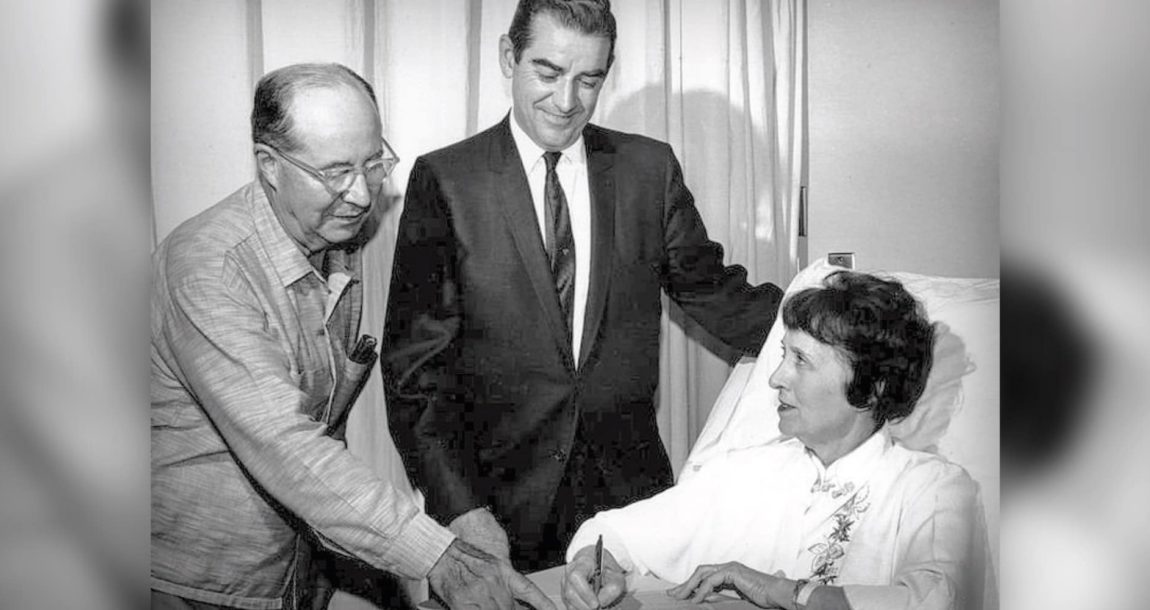Medicare At 55: Consumers Need Expert Advice

It has been part of the fabric of American life for 55 years, and it is more confusing than ever.
I’m talking about Medicare, which has been part of the health care landscape in the U.S. since the first beneficiaries enrolled in coverage on July 1, 1966.
More than 19 million people enrolled in Medicare that first year, and as the U.S. population continued to age, the number of Medicare beneficiaries more than tripled, to 62 million today. And the U.S. Census Bureau estimates that nearly 37 million baby boomers will turn 65 in the next decade.
Added to the increased number of Medicare beneficiaries is the increased number of Medicare Supplement and Medicare Advantage plans from which to choose. Consumers face a confusing array of selections. Frequently, they choose a plan based on the cost of premium, or they opt in to a plan hawked by some aging celebrity on TV. And choosing the wrong plan can end up costing someone thousands of dollars in out-of-pocket expenses — especially difficult at a time when beneficiaries are likely to be living off their retirement funds.
It may be attractive for someone to choose a plan endorsed by some over-the-hill athlete, and it may be easy for someone to call a toll-free number printed on a postcard that arrives in the mail.
But it’s no substitute for getting the straight scoop on Medicare choices from an advisor who knows the pros and cons of each product and takes the time to learn what each individual client needs.
Our October issue traditionally has focused on some aspect of health insurance. This year, we decided to look into Medicare and what those who are in the know can tell our readers about serving this important market segment. We found some good news and some not-so-good news.
The good news is that more features are available in Medicare Advantage plans to help beneficiaries remain healthy and independent and have many of their needs addressed. These social determinants of health include anything from transportation to medical appointments to access to food.
Jesse Slome, executive director of the American Association for Medicare Supplement Insurance, sees explosive growth in the med supp arena.
“Think of a product for which you have 11,000 prospects daily, who basically have to make some sort of decision, and in a program that’s enormously confusing,” he said in this month’s interview with InsuranceNewsNet Publisher Paul Feldman. “It’s exploding, and the explosion is only going to get bigger. You’re seeing some seismic changes that impact both distribution and consumer.”
But he also noted that advisors must compete with venture capitalists and direct writers. To do that, advisors must be strategic about how they market themselves and how they build their brand.
The future of Medicare itself also is in question, with the latest Medicare trustees report warning that beginning in 2026, the trust fund for Part A will have more money going out than coming in unless Congress takes action before then to prevent insolvency. Unless Congress intervenes, the fund would be able to pay only roughly 91% of claims under Part A, beginning that year. Some of the options that could help remedy the problem include having Medicare cut payments to providers or to Medicare Advantage plans or increasing cost-sharing for beneficiaries.
Whatever the future of Medicare, the fact remains that the program has been crucial in helping older Americans maintain their health and independence since the first beneficiaries enrolled 55 years ago.
And it’s a market that will continue to grow as it continues to need expert advice from people like you.
Susan Rupe is managing editor for InsuranceNewsNet. She formerly served as communications director for an insurance agents' association and was an award-winning newspaper reporter and editor. Contact her at [email protected].






Report: 30% Of FINRA Arbitration Awards Went Unpaid
Second Quarter Deferred Annuity Sales Up 10-40%, Wink Reports
Advisor News
- Retirement optimism climbs, but emotion-driven investing threatens growth
- US economy to ride tax cut tailwind but faces risks
- Investor use of online brokerage accounts, new investment techniques rises
- How 831(b) plans can protect your practice from unexpected, uninsured costs
- Does a $1M make you rich? Many millionaires today don’t think so
More Advisor NewsAnnuity News
- Great-West Life & Annuity Insurance Company Trademark Application for “EMPOWER BENEFIT CONSULTING SERVICES” Filed: Great-West Life & Annuity Insurance Company
- 2025 Top 5 Annuity Stories: Lawsuits, layoffs and Brighthouse sale rumors
- An Application for the Trademark “DYNAMIC RETIREMENT MANAGER” Has Been Filed by Great-West Life & Annuity Insurance Company: Great-West Life & Annuity Insurance Company
- Product understanding will drive the future of insurance
- Prudential launches FlexGuard 2.0 RILA
More Annuity NewsHealth/Employee Benefits News
Life Insurance News
- Baby On Board
- 2025 Top 5 Life Insurance Stories: IUL takes center stage as lawsuits pile up
- Private placement securities continue to be attractive to insurers
- Inszone Insurance Services Expands Benefits Department in Michigan with Acquisition of Voyage Benefits, LLC
- Affordability pressures are reshaping pricing, products and strategy for 2026
More Life Insurance News